
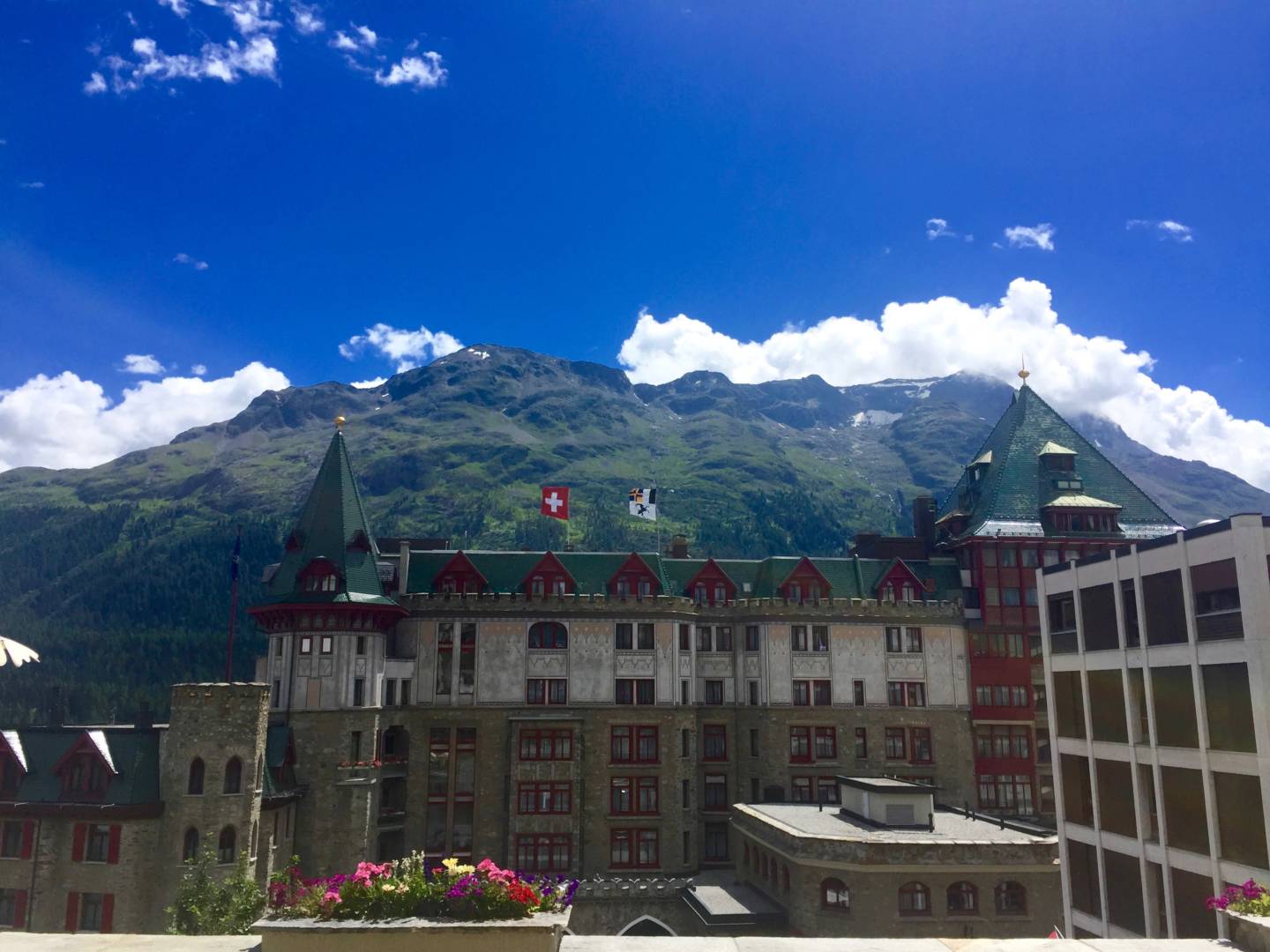
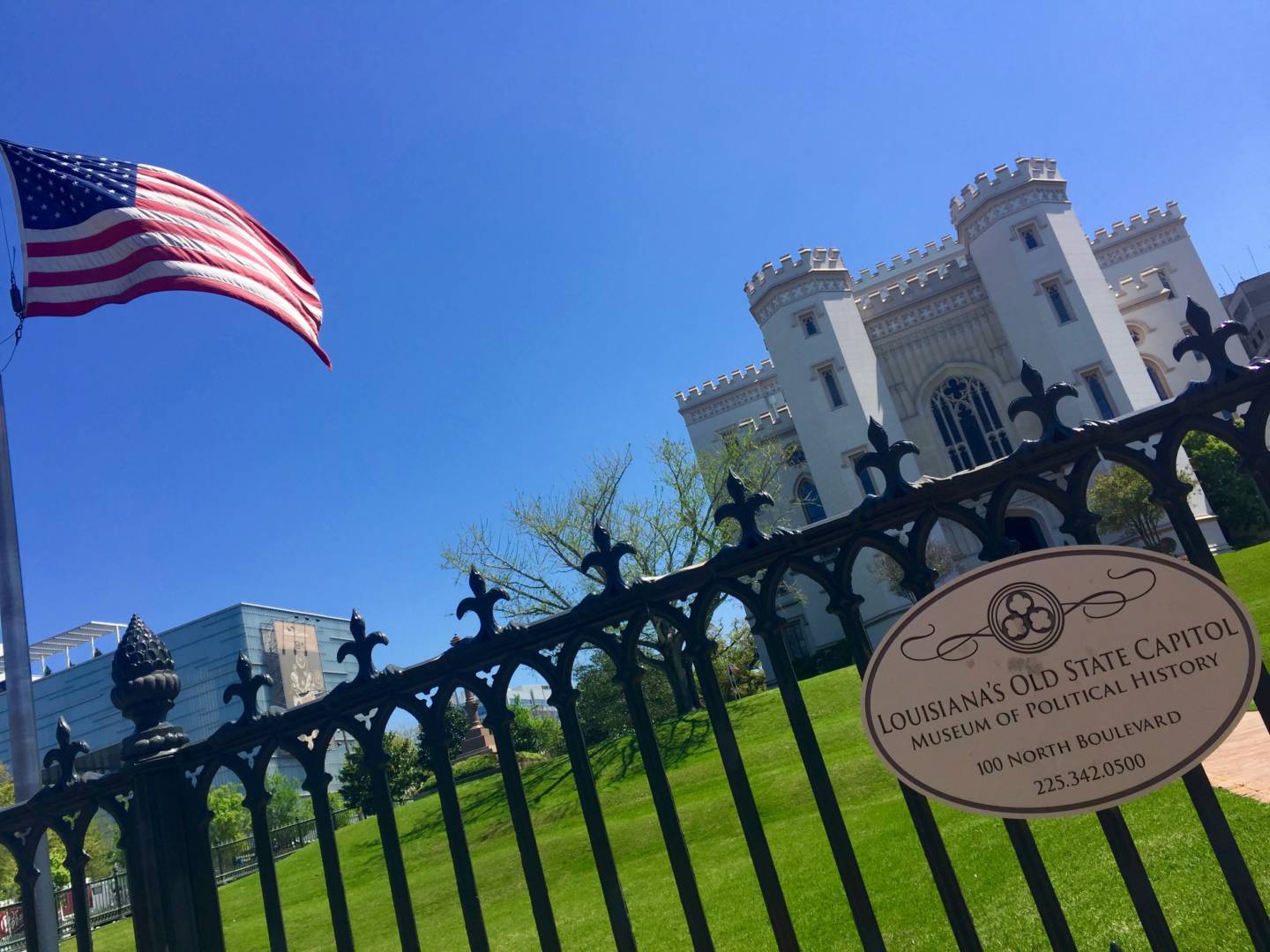
In Italian
My journey to Mississippi Delta starts like that.
From the Hwy 6 which from the green plains in the north of the state arrives as far as the first marshes – once cotton fields – that precede the old great river of America.
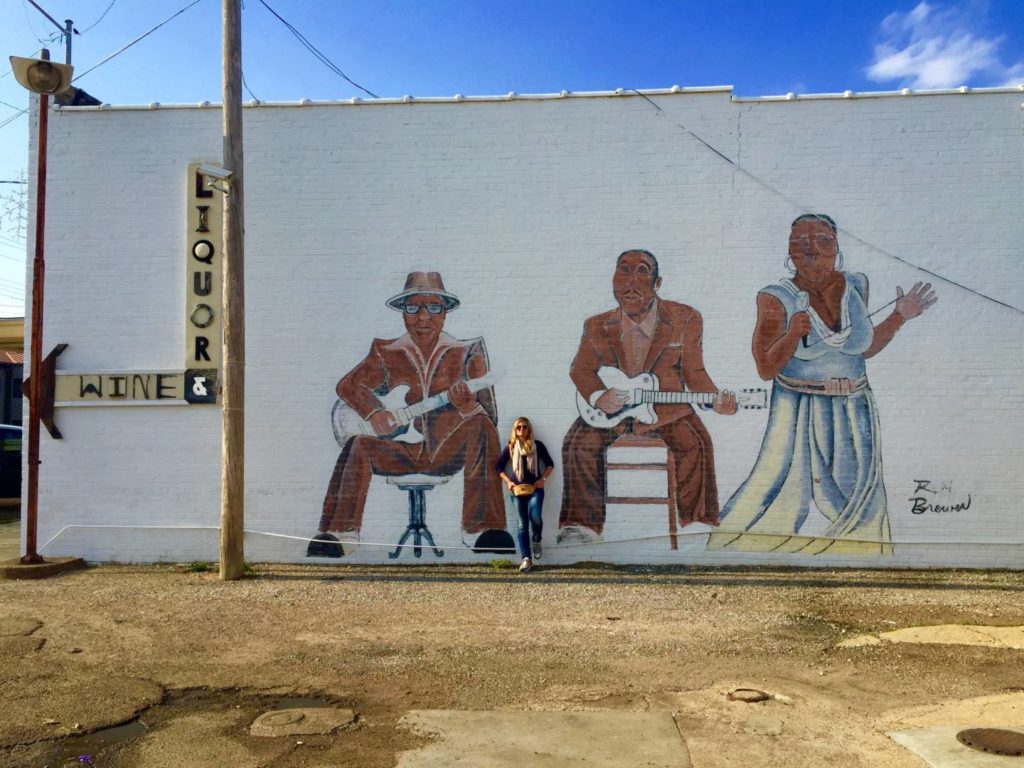
Journey to Mississippi Delta, Clarksdale
From a blues tune appeared by chance in the radio once got past the little city of Batesville, from the tempting smell of a fried green tomatoes dish on the wood table of a dusty Juke Joint. From the faded colors of a mural along the Blues Hwy 61, from a crossroads in the middle of nothing and from a charming legend which rises its fame among the inhabitants and the lovers of Delta.
From Batesville to Marks as far as reaching Lyon.
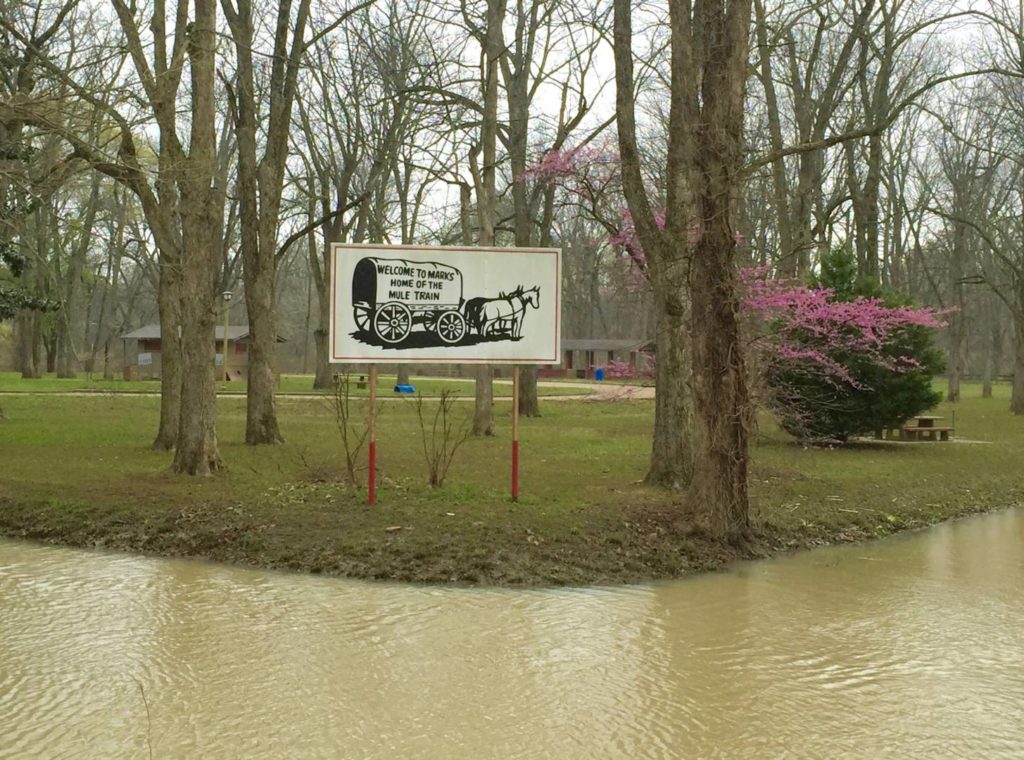
Journey to Mississippi Delta, Batesville and its marshes
The colors change, the air becomes thick, the sun and the thunderstorms play to exchange the roles in a few seconds.
And the horizon line, usually well clear, gradually starts to fade into the thousands reflexes of the neighboring marshes.
It’s the Mississippi Delta, it’s finally Clarksdale, it’s the rhythm and the “warmth” of the old river, it’s a far pain song, it’s Blues.
“I’ve never played the blues, not really. I’ve run after it all over these years.
I’ve scratched its stratum and copied some notes.
But the real Blues is buried by mud and blood of the Mississippi Delta”
(Walter Mosley)
The first leg is The Crossroads, a crossroads to the north of Clarksdale, where the Blues Hwy 61 and the Hwy 49 meets and then continue their run southwards.
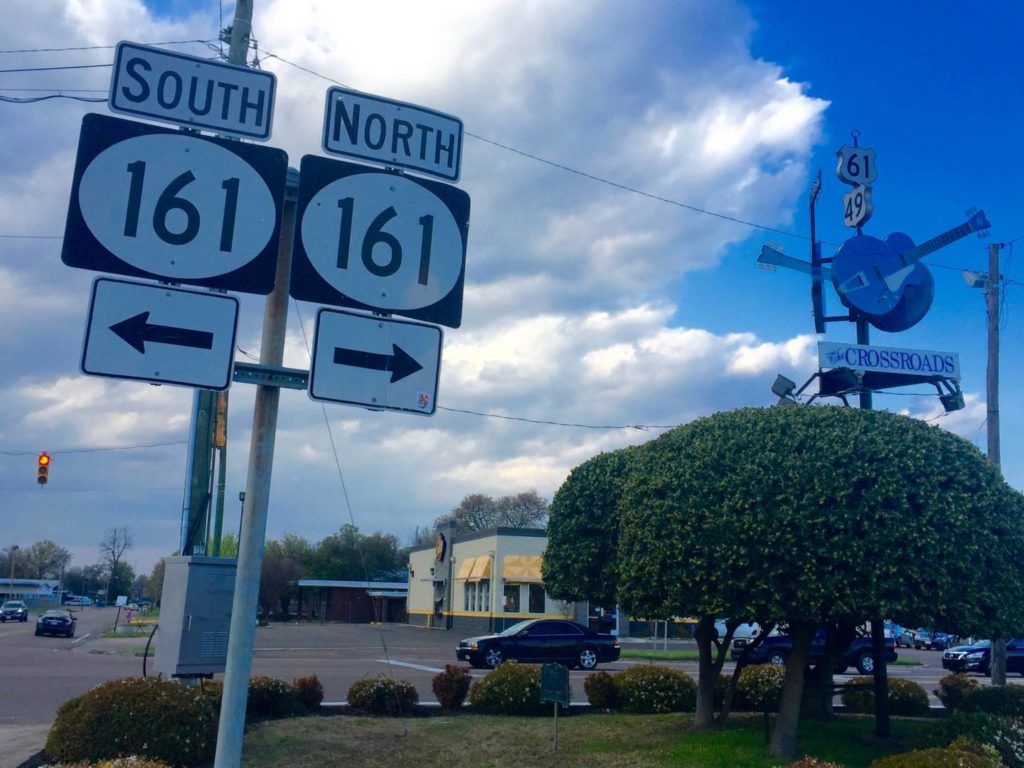
Journey to Mississippi Delta, The Crossroads
An old legend (then told in a masterly manner in the 1986 “Crossroads” movie) tells near the crossroads the guitarist Robert Johnson made a deal with the Devil selling his own soul in exchange for the possibility to be able to play the guitar, and play blues, better than anyone else.
In a short time Robert became one of the most famous guitarists and bluesmen in America. But his career didn’t last much: actually he died mysteriously at the age of 27 in 1938, releasing his diabolic deal.
“He died in a haze: if someone remember that he was stabbed, others say that he was poisoned,
that he died on his knees, on his hands, barking like a dog…
that his death had something to do with the black arts”
(Greil Marcus)
The three blue guitars in the center of the crossroads indicate the presumed place where, always according to the legend, the satanic deal was made.
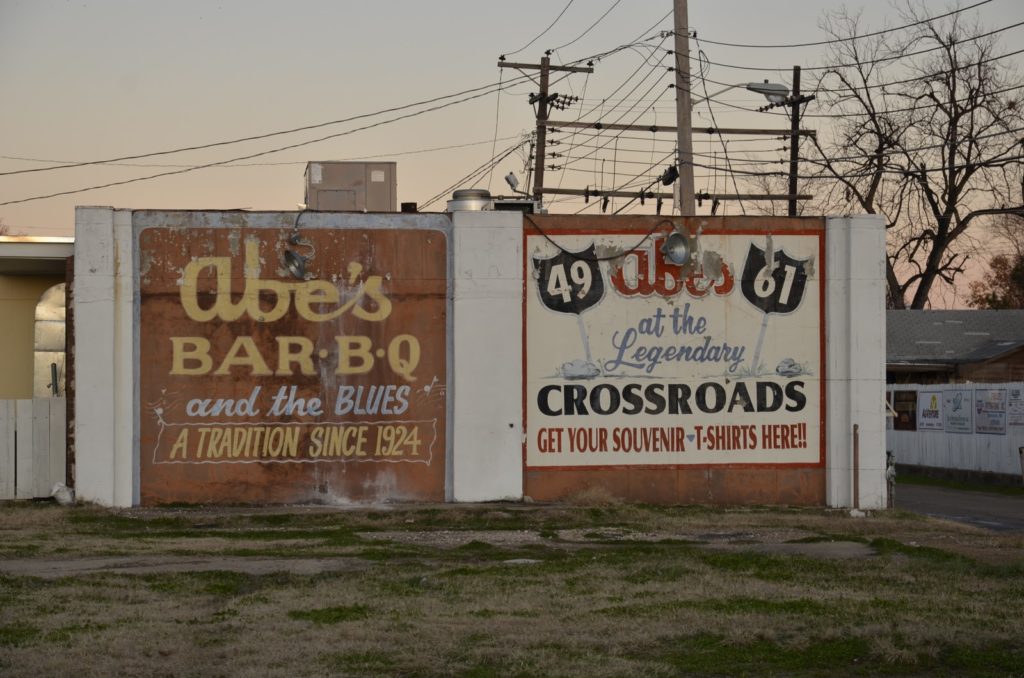
Journey to Mississippi Delta, near The Crossroads
Clarksdale oozes music and passion.
Much more than a characteristic province little city where to listen to good music, like it would seem at first.
Clarksdale is an emotion, an experience to live and enjoy – without hurry – following the slow and rhythmic rhythms of South, the quintessence of what a journey to Mississippi Delta can offer.
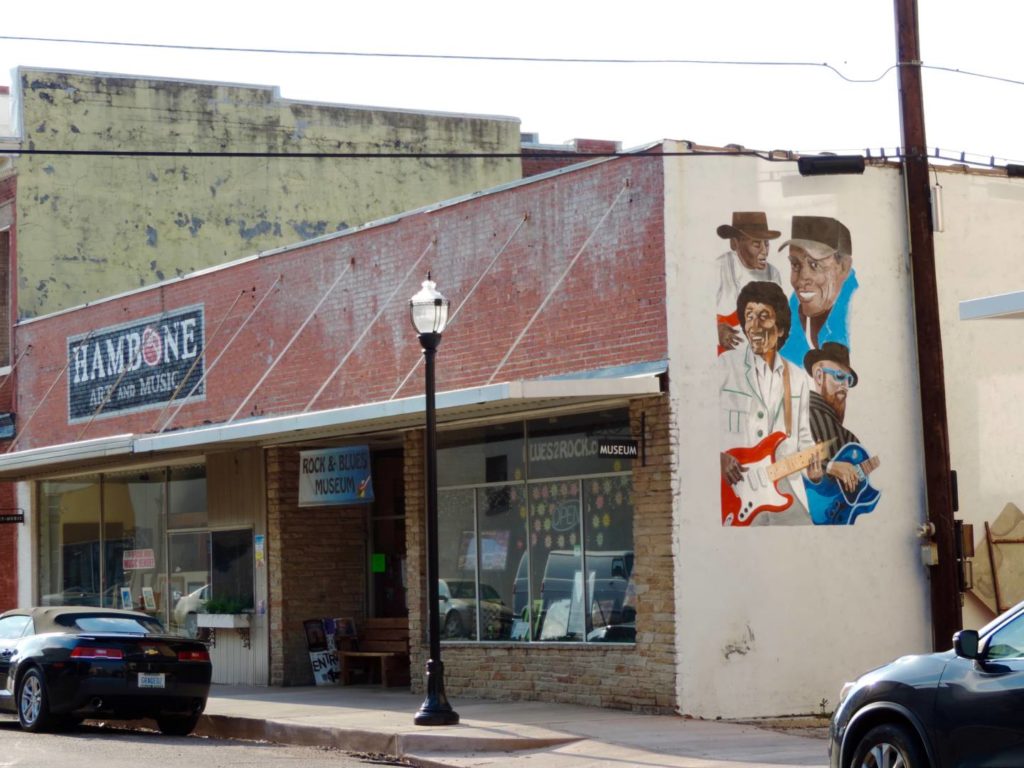
Journey to Mississippi Delta, walking through Clarksdale
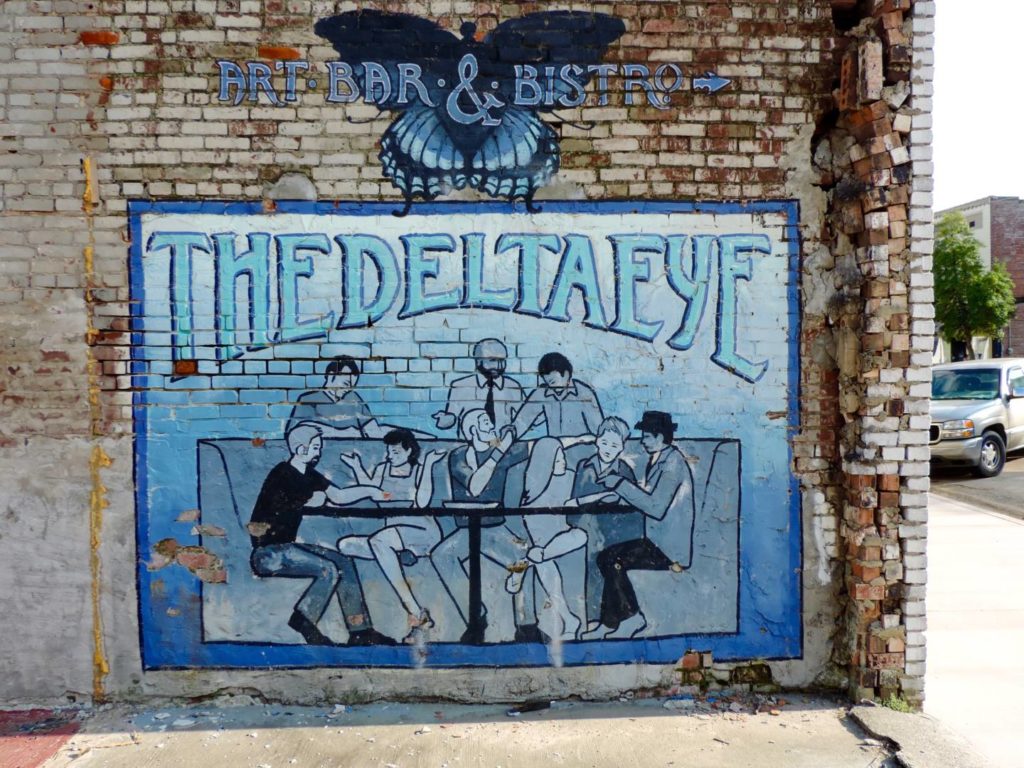
Journey to Mississippi Delta, the “colors” of Clarksdale
Try to imagine to wake up in one of the old sharecroppers’ sheds – and even before black slaves’ – of the Shack Up Inn, walking among the cotton fields and be suddenly in the far antebellum Mississippi: absorbed among the plantations, accompanied by the sound of a far melody, sad but strong and intense like the pain and labor song of the black workers going back from the cotton fields, like blues.
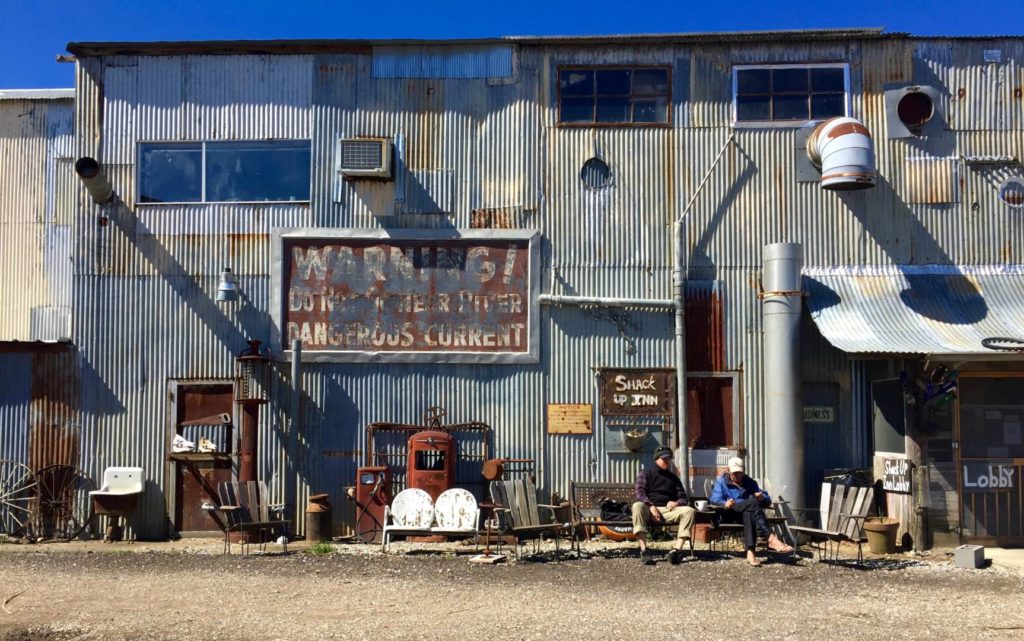
Journey to Mississippi Delta, welcome to Shack Up Inn
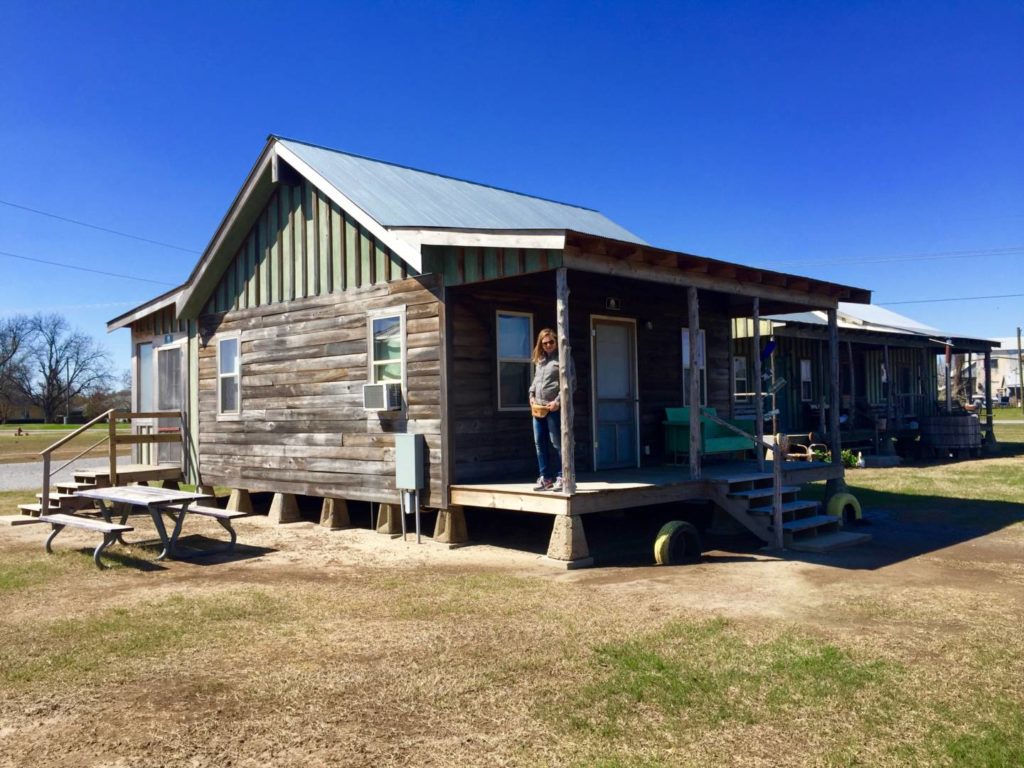
Journey to Mississippi Delta, Shack Up Inn, my shed for the night
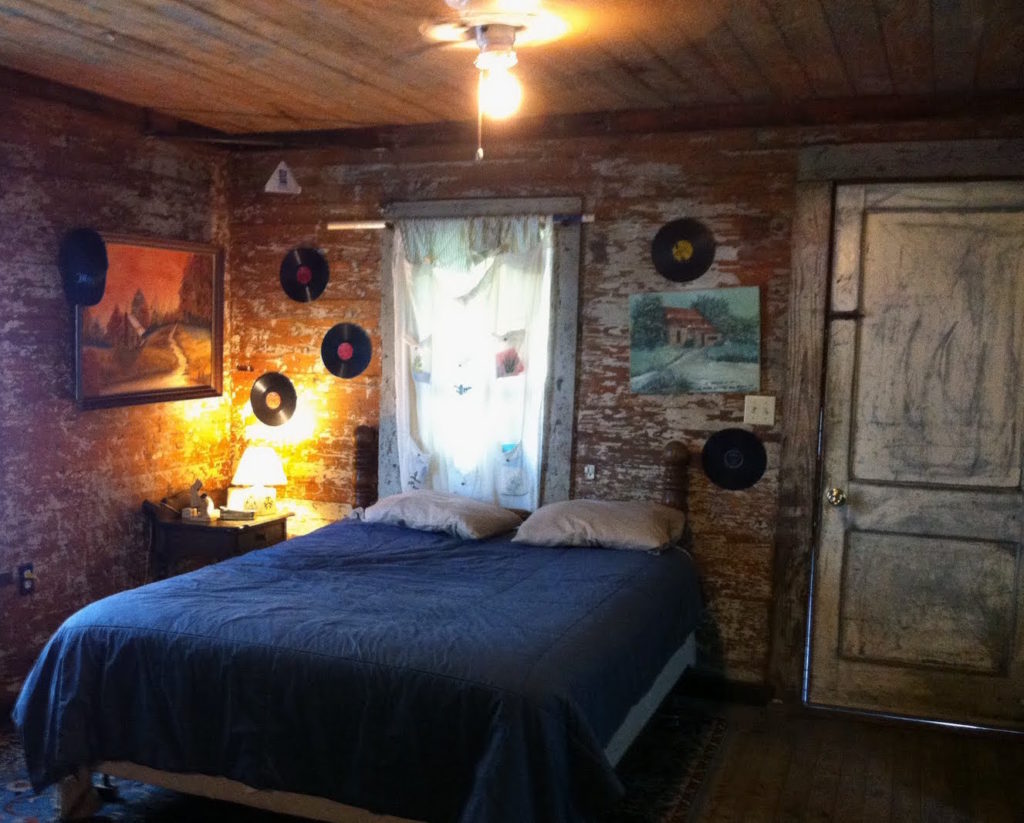
Shack Up Inn, inside
The relive the deeds, to touch lightly the original instruments and the relics related to the legends of the music and listen to the lives of the greatest bluesmen that the history remembers at the Delta Blues Museum, an old good warehouse of the first 1900s.
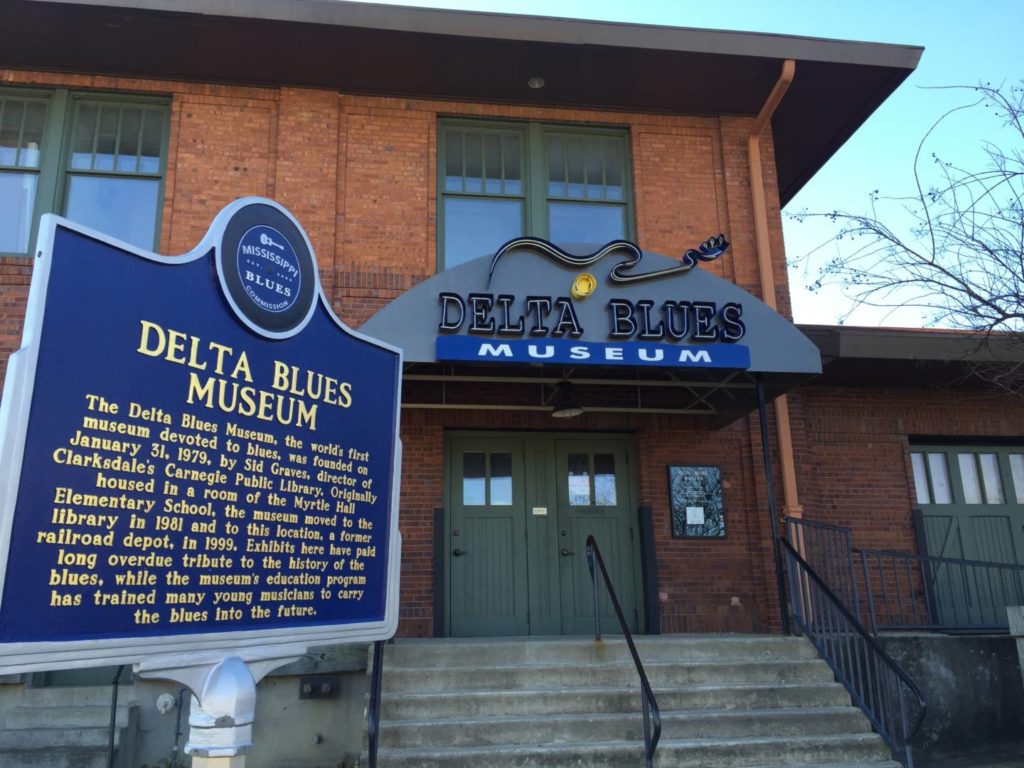
Journey to Mississippi Delta, Delta Blues Museum
Have you ever listened to some “pieces” of Muddy Waters? Simply, thrill.
Try to imagine eating fried green tomatoes – keeping listening to blues, of course – in the mythical Ground Zero Blues Club (the Juke Joint that belongs to the actor Morgan Freeman and it often happens to run into him on the stage while he is playing blues with his friends), or in the near Red’s Blue Club.
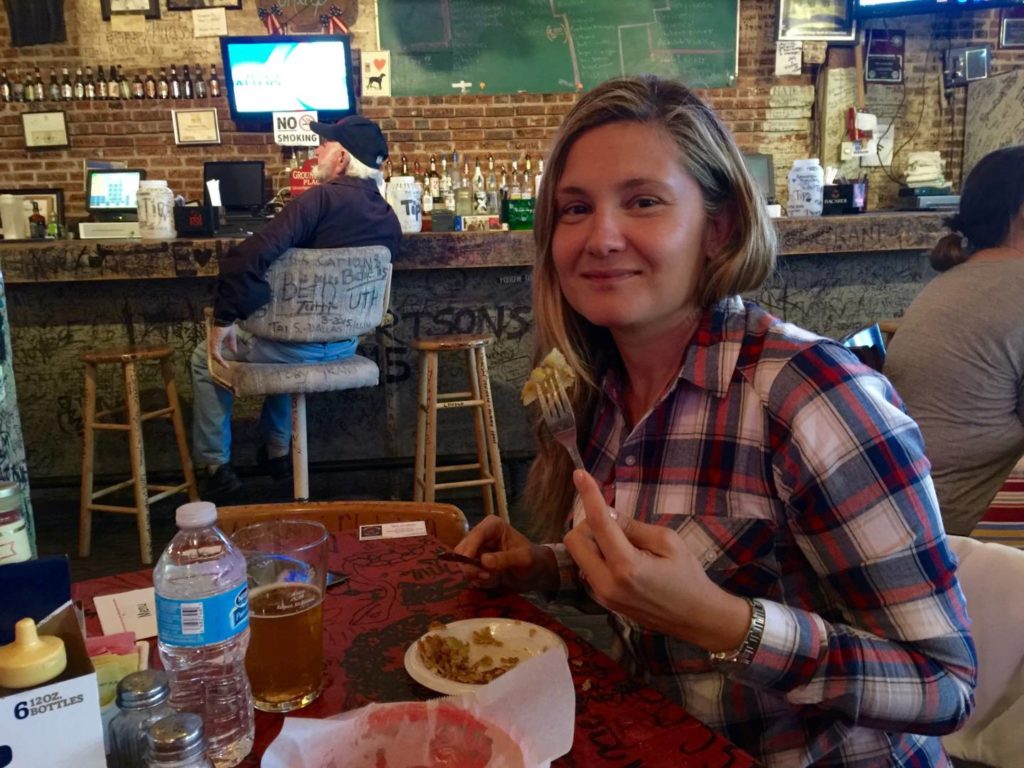
Journey to Mississippi Delta, eating fried green tomatoes at Ground Zero Blues Club
What’s a Juke Joint?
It’s a bit more than a shed where people play music, apparently.
Actually it’s a sort of magic box where to go into, to lose the sense of time and get caught – accompanied by an iced beer and a dozen of crisp fried chicken wings – by the notes and the words of the live legends of Blues.
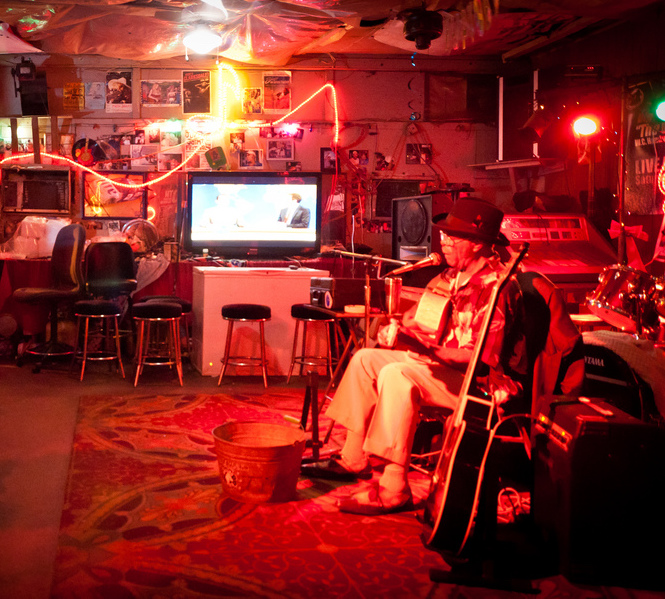
Journey to Mississippi Delta, live session at Red’s Blue Club
And then walking along the Riverside Hotel’s corridors and maybe take a room for the night. Any place in the whole Clarksdale is more soaked with history, music and old legends. At first a hospital and then starting from the 1940s a hotel for only “blacks” which hosted over time the greatest blues celebrities. And sometimes rock and jazz.
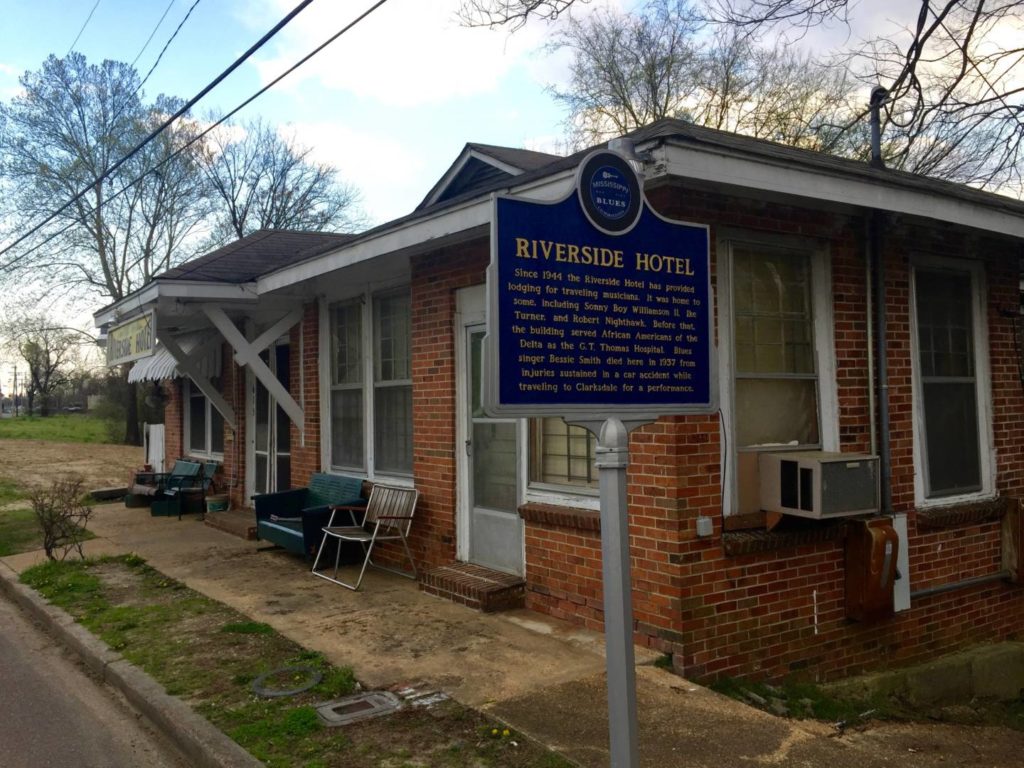
Journey to Mississippi Delta, Riverside Hotel
And finally going into one of the cult places of the whole Clarksdale, the Cut head Delta Blues and Folk Art (people define it the Blues general store), maybe right during the Clarksdale Juke Joint Festival in the middle of April, organized by its owner, the mythical Roger Stolle.
And to top it all off, go over again the locations and the stories of the characters (real) who inspired the young Tennessee Williams for his “A streetcar called desire”, through an incredible Walking Tour. And set out on a themed path which will crosses the Mississippi as far as Louisiana.
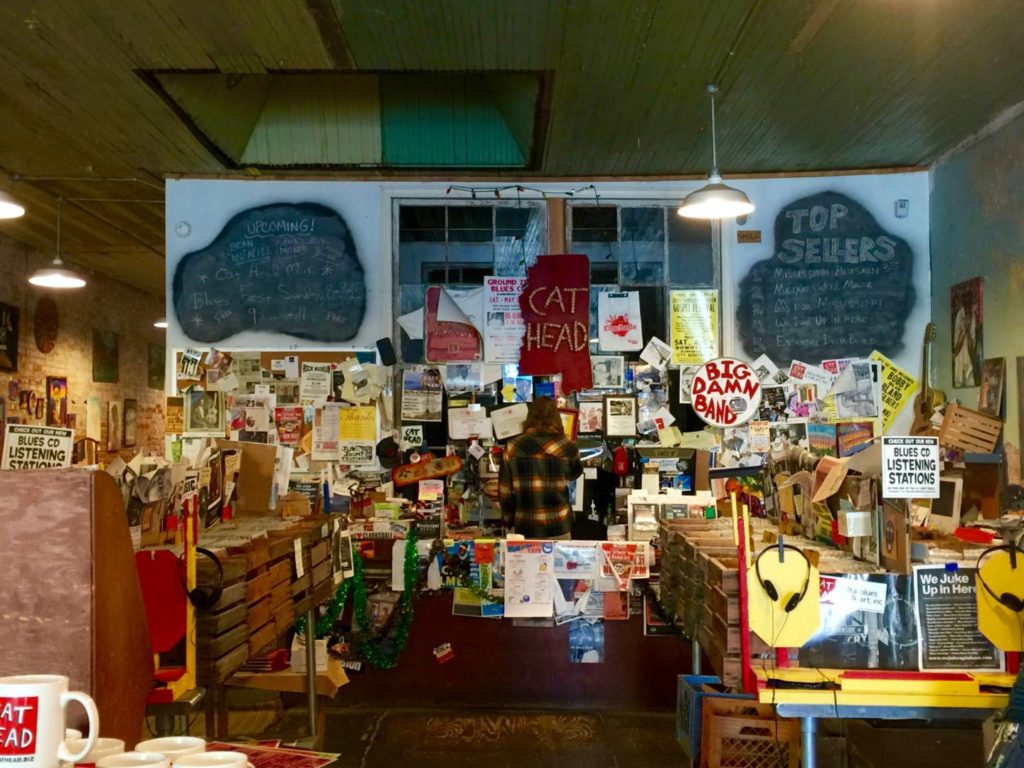
Cut Head Delta Blues and Folk Art, Clarksdale
But Delta is not only Clarksdale.
David L. Cohn, a passionate writer of Mississippi and its stories, loved to repeat that “… the Delta begins in the Peabody Hotel lobby in Memphis and ends in the Catfish Rowing in Vicksburg”.
But the heart of this marshy area skirting the old river of America and that keeps from time immemorial the stories, the secrets and the very first notes of the real and authentic blues it’s the incredible Hwy 61: from Clarksdale it skips in slowly with a rhythm and a course of its own among the little cities to the south revealing some little gems, often famous to a few people.
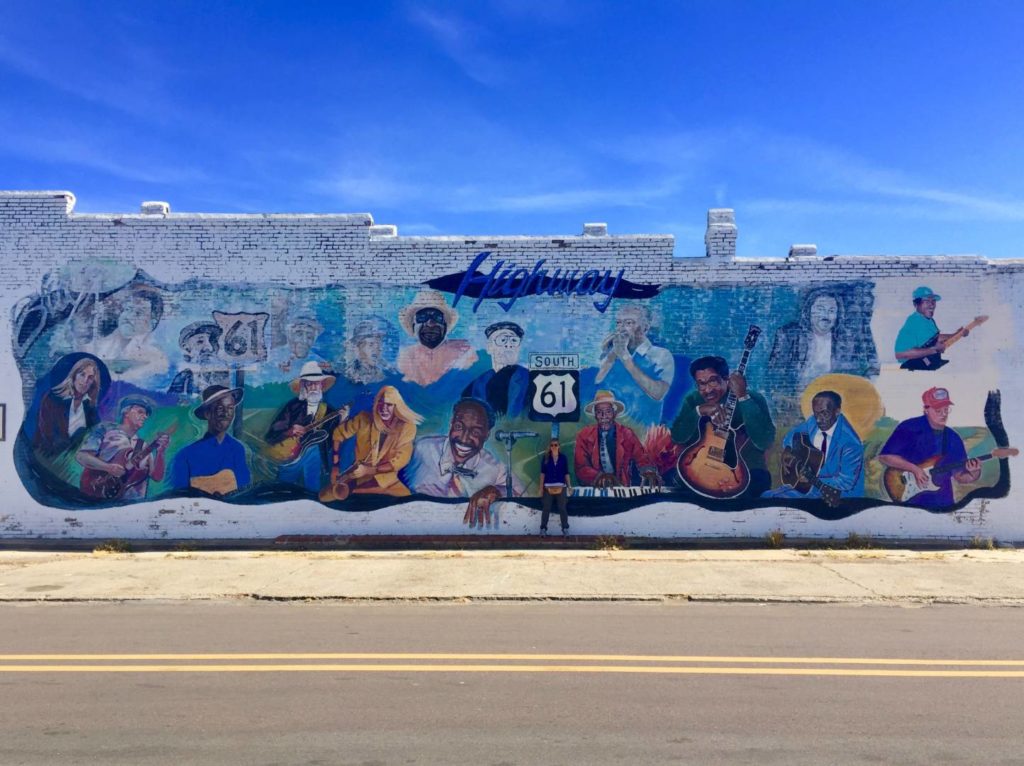
Journey to Mississippi Delta, along the Blues Hwy 61
Starting from the very new Grammy Museum Mississippi in Cleveland – a dive into the American music history, its kinds, the protagonists, the inspirations and the recognitions – to the Hwy 61 Blues Museum in Leland and its six rooms dedicated to the history and the instruments of the great bluesmen of Delta, first among equals James Son Ford Thomas.
At this point it’s impossible not to stop in the neighborings for lunch, maybe at Cicero’s to taste one of the best fried catfish of Delta and at Connie’s Kitchen for the delicious chocolate brownies and the lemon cream cookies.
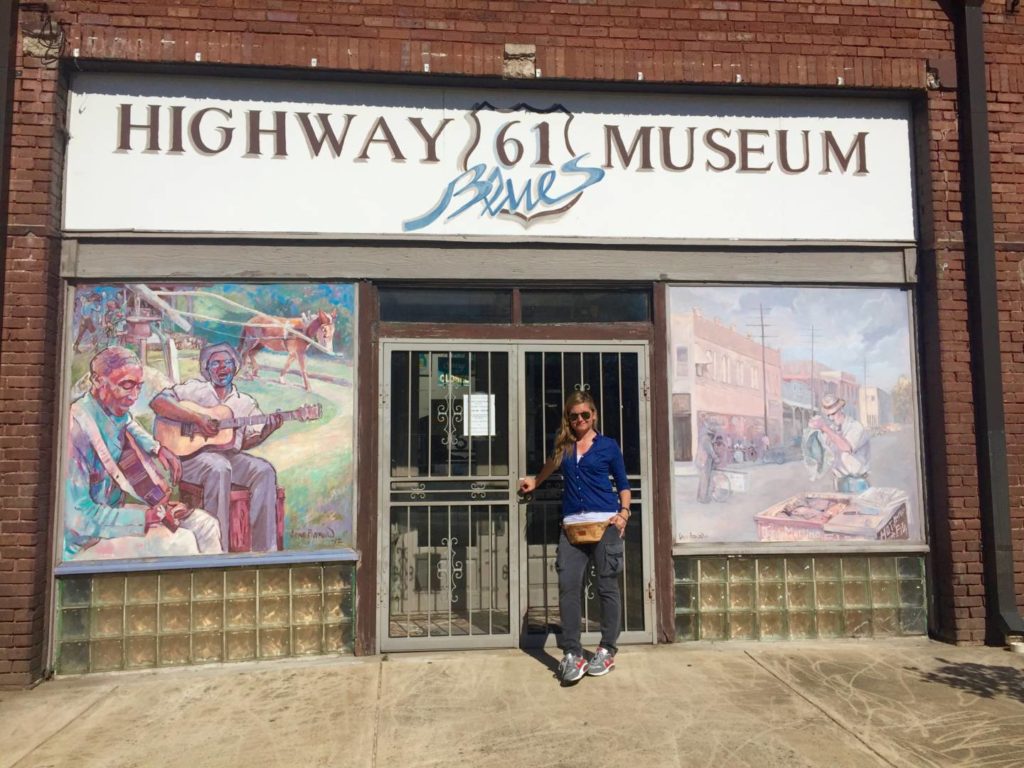
Blues Hwy 61 Museum, Leland
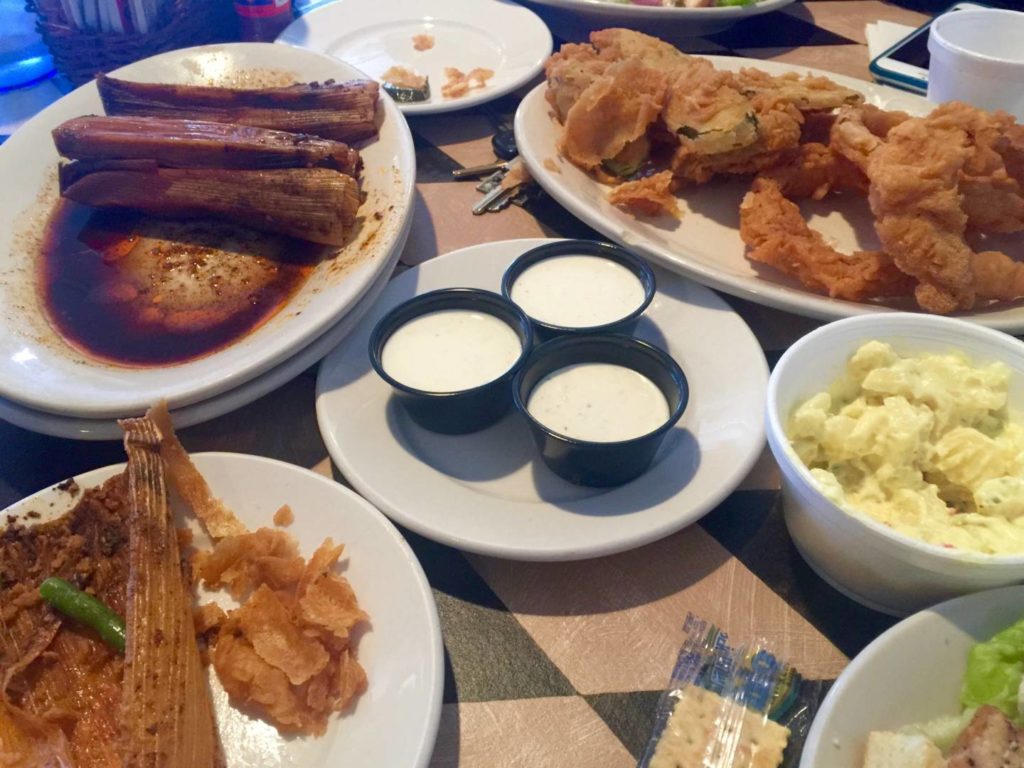
Lunch at Cicero’s
Then going along towards the B.B. King Museum in Indianola (not to be missed for the lovers of the great singer ) as far as Greenwood, to relive – through the movie locations – the stories of The Help’s protagonists, set in the difficult 1950s during the fights for the Civil Rights.
To arrive to Greenville at last, on the banks of the Mississippi River, maybe in September to take part into the Mississippi Delta Blues & Heritage Festival, the greatest festival dedicated to Blues and its idols, of yesterday and today.
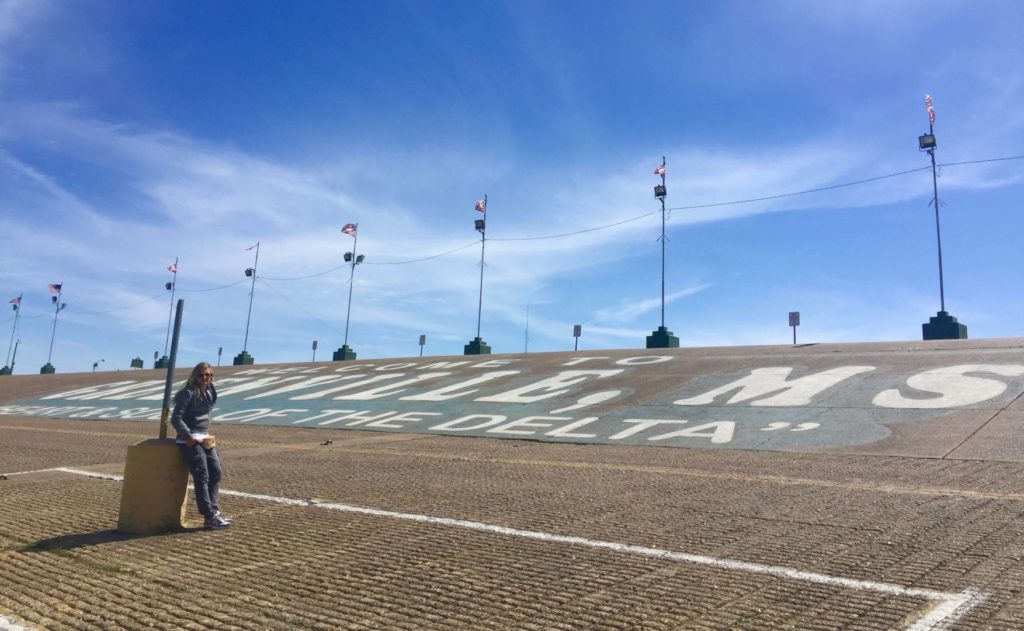
Journey to Mississippi Delta, Greenville
It’s a feel, a boundless hug made of smiles, warm, music and welcome.
A wonderful, melancholic mood, giving to every single visitor the unique feel to be at the same time guest in a land that makes you feel at home and that pushes you to reflect inevitable, after have listened to its history (and its music).
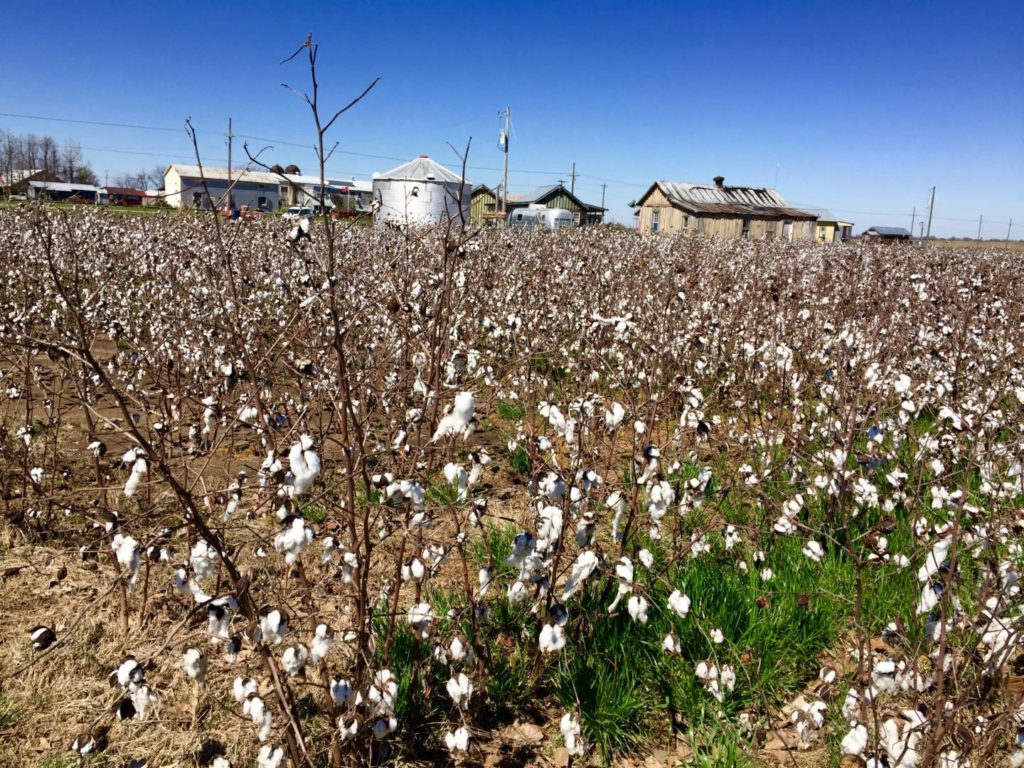
Journey to Mississippi Delta, cotton fields
Whether you love blues or not – in this case after a couple of days here in the Delta you could become really lovers of it, trust me – it’s worth it to arrive as far as here.
To live a dream made of music, legends, fried green tomatoes and cotton fields.
To discover (again) another charming, unique and special “piece of America”